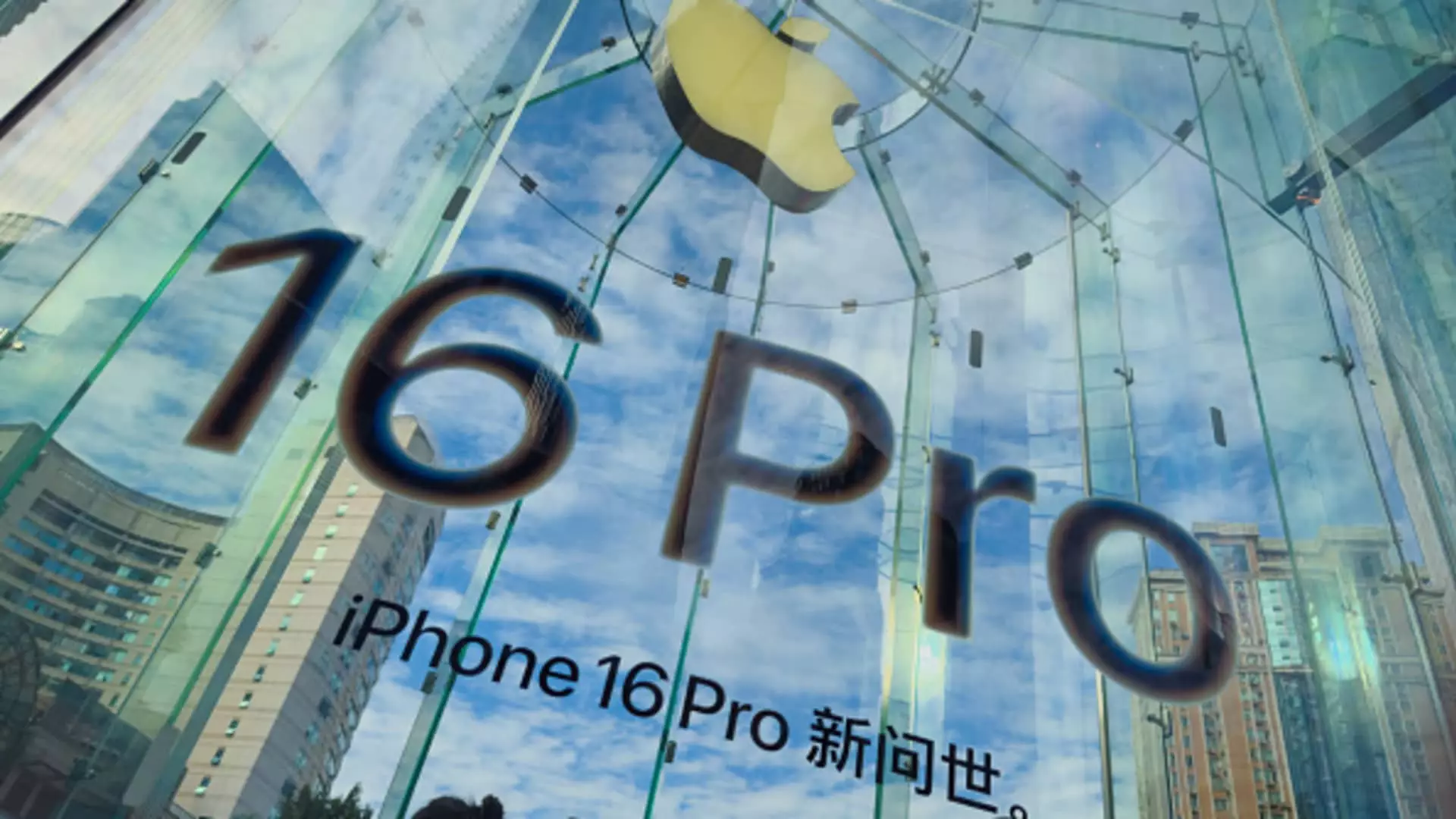As the Chinese New Year approaches, Apple is shifting its sales strategy by offering notable discounts on its premium iPhone models and other devices within its product line. Historically, Apple has taken a conservative approach to pricing, avoiding direct discounts in its retail stores and relying instead on third-party retailers for promotional offers. However, the need for more aggressive pricing tactics has become apparent due to intensified competition from domestic brands in China, particularly Huawei. As the Chinese market becomes increasingly critical for Apple’s growth, this strategic pivot aims to maintain and potentially expand its market presence.
Apple is now providing discounts of 500 Chinese yuan (approximately $68.50) on the flagship iPhone 16 Pro and iPhone 16 Pro Max, alongside reductions of 400 yuan for the iPhone 16 and iPhone 16 Plus models. Notably, this trend isn’t limited to the newest releases; even the iPhone 14 and iPhone 15 are included in this promotional period. This move marks a significant shift for the company, reflecting a broader trend where Apple has increasingly embraced seasonal deals throughout 2023, including multiple promotions during the 618 shopping festival. This pattern indicates the company’s responsiveness to market pressures and the evolving demands of consumers who are more price-sensitive in a competitive environment.
The heightened competition Apple faces is underscored by recent developments from Huawei, which has seen a remarkable resurgence. According to reports from Canalys, Apple experienced a year-on-year decline of 6% in smartphone shipments in mainland China during the third quarter of 2024, resulting in a 14% market share, down from 16% in the previous year. In contrast, Huawei’s strategic marketing and revitalization efforts have propelled its shipments to grow by an impressive 24%, increasing its market share from 13% to 16%. This startling turnaround underscores not only the fierce rivalry in the smartphone sector but also the impact of well-timed releases and innovation.
Huawei has consistently leveraged its technological prowess to reclaim its market position, unveiling innovative devices such as a first-of-its-kind trifold phone, showcasing their commitment to pushing the boundaries of smartphone design. In addition to this, Huawei’s ability to overcome challenges stemming from U.S. restrictions on its technology—by developing chips and systems that were previously thought not feasible—demonstrates its resilience and adaptability. Moving forward, Apple must navigate this increasingly crowded and competitive landscape, where customer loyalty can swiftly shift in response to perceived value, innovation, and pricing strategies.
Apple’s recent decision to offer discounts during a crucial sales period like the Chinese New Year reflects a broader acknowledgment of market dynamics and changing consumer behaviors. In a tech environment marked by fierce competition, particularly from emerging domestic brands like Huawei, Apple’s approach may set the tone for its future strategies in China. As the company prepares to confront these challenges head-on, its ability to balance innovation, pricing, and market positioning will remain paramount for sustaining its legacy in one of its most important markets.

